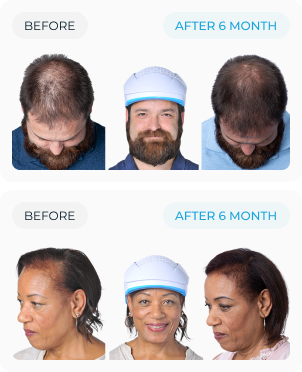Salt water is great—if you’re seasoning pasta or exfoliating your feet. But when it comes to hair, that age-old question—is salt water good for your hair—has stirred more debate than most people expect from a mineral and a strand of keratin. Some folks swear it gives volume, texture, and that impossibly tousled look straight off a fashion shoot. Others end up with what feels like a haystack, freshly marinated in regret.
The truth is… salt water isn’t your enemy. But it’s not your personal stylist either. On one hand, it can gently cleanse your scalp, remove buildup, and give limp strands a bit of lift. On the other, it’s dehydrating, it roughs up your cuticles, and it can make chemically treated hair behave like it's auditioning for a scarecrow convention. You’re not wrong to love it—but you're also not wrong to fear it a little.
And then there's the sneaky cousin in this whole conversation: saline. It's tamer, sterile, and less glam than beach waves—but when used right, it can soothe irritated scalps and freshen up follicles. Unfortunately, both salt and saline are often tossed into the same “natural = good” category without nuance—and that’s where things go sideways.
So before you rinse, soak, or spritz your hair into a mineral brine, let’s separate hard facts from myths. Here’s a full-on breakdown of what salt water really does to your hair, when it helps, when it wrecks shop, and how to not ruin your scalp in the process.
How Salt Water Affects Hair & Scalp?
Salt water offers both perks and pitfalls for your hair. On one hand, it can act as a natural detoxifier and volume-builder. On the other, it clings to your strands, strips moisture, and roughens up the cuticle. Understanding this double-edged effect—not just is salt water good for your hair, but when and how much—helps you use it wisely.
Benefits of Salt Water
Salt water hair benefits are legit when used correctly. First, it acts as a natural exfoliant & clarifier, helping to sweep away product buildup and dead skin cells. Next, its dehydrating effect gives strands texture & volume boost, creating that sought-after tousled look. Lastly, minerals in sea water—like magnesium and calcium—can support scalp health and reduce inflammation.
Harms of Salt Water
But nothing comes free. After repeated exposure, dryness sets in—as salt draws moisture out of the strands. Cuticle damage follows, making hair porous and vulnerable. If your hair’s dyed or chemically treated, salt accelerates color fading & chemical vulnerability. And yes, scalp irritation can occur, especially if minor cuts or conditions are present.
How to Protect Hair from Salt Water Damage?
You don’t have to swear off salt water to keep your hair happy. Just treat it with a little compassion—by prepping, protecting, and nourishing. These simple steps let you enjoy the benefits without the fallout.
1. Wet hair before with fresh water
Pre-soaking your hair in freshwater before exposure reduces how much salt it absorbs. Think of it as partially filling a sponge—you end up soaking up less harsh seawater later.
2. Use protectants
Apply a thin layer of leave-in conditioner, serum, or oil before heading into salty water. They form a barrier that slows down salt penetration while locking in hydration.
3. Rinse Immediately
Once you're done, rinse your hair thoroughly with freshwater—or at least a sulfate-free shampoo. Leaving salt on dries the hair, stiffens strands, and can set cuticle damage in stone.
4. Moisturize Hair
After rinsing, follow with a deep conditioner or mask packed with hydrating humectants like glycerin or panthenol, along with fatty acids. Hydration reduces brittleness and restores pliability.
Also Read: How to moisturize dry hair?
5. Clarify periodically
Salt residue and minerals build up over time. Use a gentle clarifying shampoo once a week to remove deposits and restore shine without stripping essential oils.
6. Use protective gear
Swim caps aren’t just for laps; they limit salt water contact and keep your scalp protected, especially if you swim frequently or for long periods in the sea.
Is Salt Hair Spray Good for Your Hair?
Sea salt spray hair texture lovers—this one’s for you. Most sprays use sodium chloride, along with alcohol or polymers, to mimic beachy waves. But be cautious:
- They dehydrate hair, especially alcohol-heavy formulas.
- Frequent use can lead to cuticle roughening, more tangles, and breakage.
- Seek sprays with hydrating humectants (like aloe or glycerin) to counter dryness.
- Always pair with a moisturizing leave-in to keep strands flexible.
Conclusion
Salt water or saline can be a scalp-refreshing, texture-enhancing solution—but only when treated with respect. It sparks volume and keeps your scalp clearer, yet becomes harsh without hydration and barriers. So yes, salt water is good for your hair—in moderation, with prep and protection.
If past salt play left your strands dry, brassy, or brittle, consider gentle repair treatments. And for a serious reset after mineral overload, the Theradome Laser Helmet can help strengthen hair, soothe the scalp, and boost regrowth where salt may have overstayed its welcome.

























